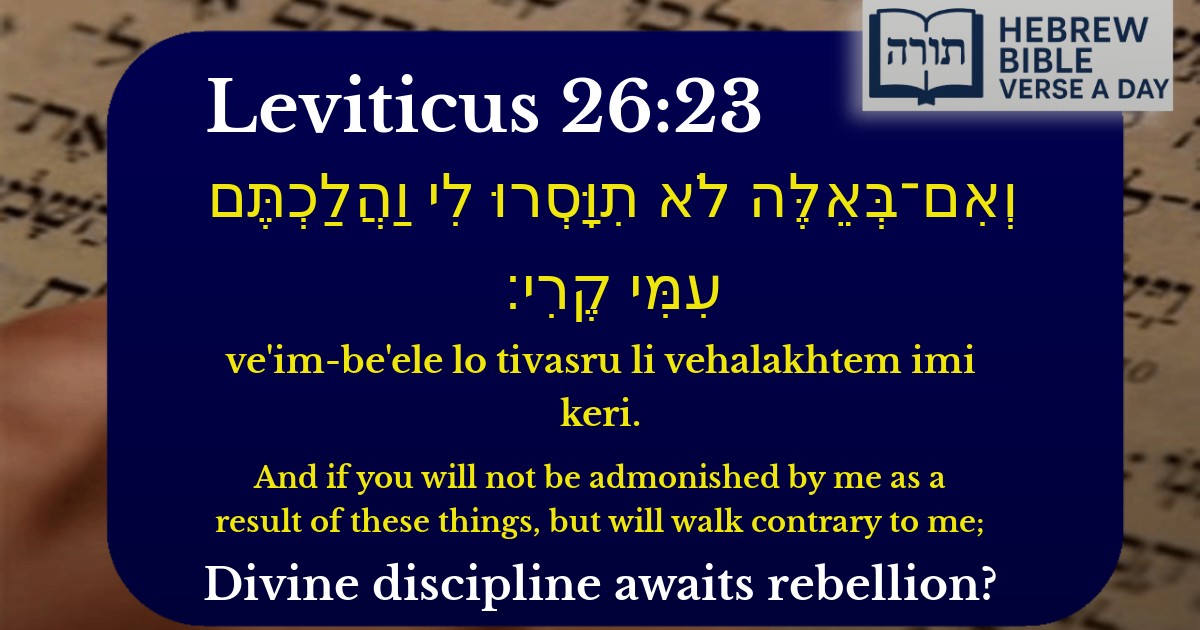Join Our Newsletter To Be Informed When New Videos Are Posted
Join the thousands of fellow Studends who rely on our videos to learn how to read the bible in Hebrew for free!
Hebrew Text
וְאִם־בְּאֵלֶּה לֹא תִוָּסְרוּ לִי וַהֲלַכְתֶּם עִמִּי קֶרִי׃
English Translation
And if you will not be admonished by me as a result of these things, but will walk contrary to me;
Transliteration
Ve'im-be'ele lo tivasru li vehalakhtem imi keri.
Hebrew Leining Text
וְאִ֨ם־בְּאֵ֔לֶּה לֹ֥א תִוָּסְר֖וּ לִ֑י וַהֲלַכְתֶּ֥ם עִמִּ֖י קֶֽרִי׃
וְאִ֨ם־בְּאֵ֔לֶּה לֹ֥א תִוָּסְר֖וּ לִ֑י וַהֲלַכְתֶּ֥ם עִמִּ֖י קֶֽרִי׃
🎵 Listen to leining
Parasha Commentary
📚 Talmud Citations
This verse is not quoted in the Talmud.


Understanding the Verse in Context
The verse (Vayikra 26:23) appears in the Tochacha (Rebuke) section of Parshat Bechukotai, where Hashem warns of the consequences if Bnei Yisrael fail to follow His commandments. The phrase "וְאִם־בְּאֵלֶּה לֹא תִוָּסְרוּ לִי" ("And if you will not be admonished by me as a result of these things") suggests that despite previous punishments, the people remain unrepentant.
Rashi's Explanation
Rashi interprets "קֶרִי" ("contrary") as meaning "by chance" or "with indifference"—as if the people attribute their suffering to mere happenstance rather than Divine providence. This reflects a lack of teshuvah (repentance) and recognition of Hashem's role in their hardships.
Rambam's Perspective
In Hilchot Ta'anit (1:1-3), the Rambam teaches that suffering is meant to awaken people to introspection and repentance. If they instead respond with keri—dismissing events as coincidence—they compound their wrongdoing by denying Divine justice.
Midrashic Insights
Chassidic Interpretation
The Kedushat Levi (R' Levi Yitzchak of Berditchev) explains that keri represents a fractured relationship—walking against Hashem rather than with Him. True yirah (awe) requires recognizing that all events, even hardships, come from Hashem for our ultimate benefit.